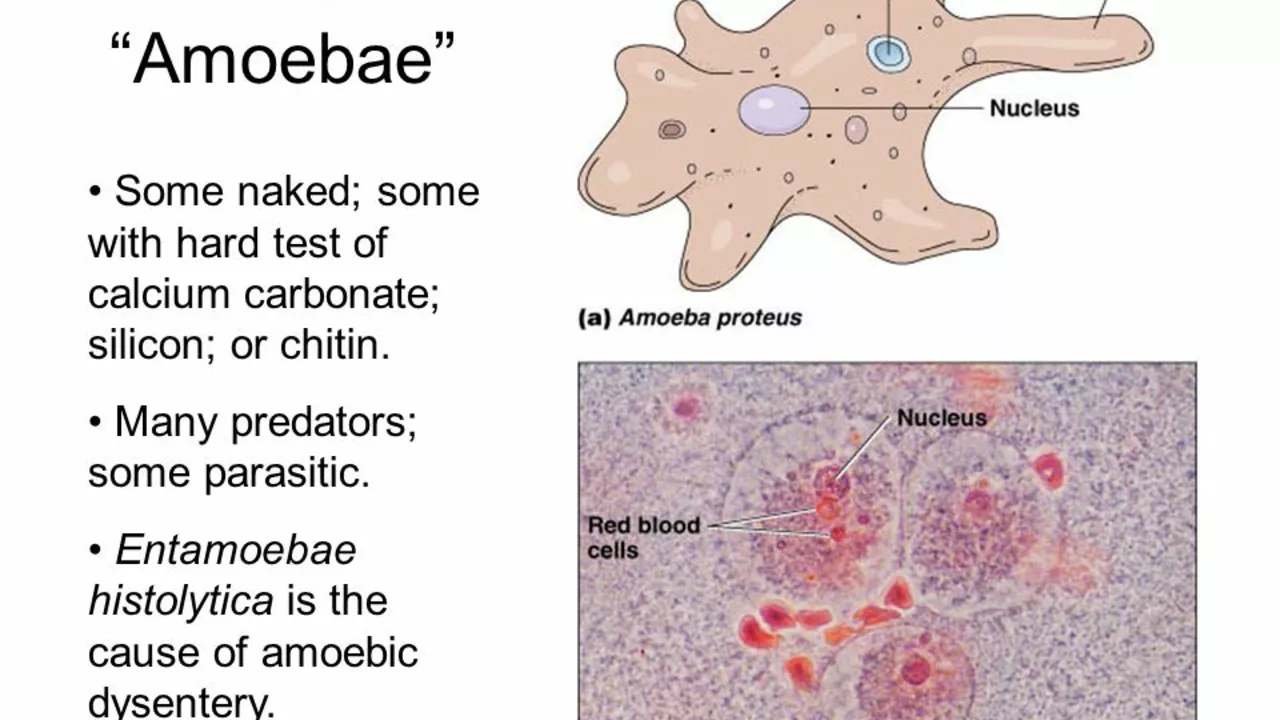Amoeba infections: what to watch for and what to do
Amoeba infections can range from mild stomach upset to life-threatening brain infections. The most common culprit is Entamoeba histolytica, which causes amoebic dysentery — bloody diarrhea and belly pain. Other dangerous types include Naegleria fowleri (a fast, severe brain infection after warm freshwater exposure) and Acanthamoeba (which can infect the eyes or brain, often in contact lens wearers or people with weak immune systems).
Spotting the signs quickly
For gut infections expect watery or bloody diarrhea, cramps, fever, and fatigue. A persistent low-grade fever plus right-side belly pain could mean a liver abscess — see a doctor. If someone who recently swam in warm lakes or hot springs develops a severe headache, fever, stiff neck, confusion, or seizures within days, treat it as an emergency — Naegleria infections progress fast and need immediate hospital care. For eye infections: pain, redness, blurred vision, light sensitivity, and a gritty feel — especially in contact lens users — means see an eye specialist right away.
How infections are diagnosed and treated
Doctors usually start with a clear history (travel, water exposure, contact lens habits) and order tests. Stool tests, antigen or PCR tests, and blood tests help identify Entamoeba histolytica. Imaging (ultrasound/CT) checks for liver abscesses. Eye swabs and corneal scrapings are used for Acanthamoeba. Naegleria may be detected in cerebrospinal fluid after a lumbar puncture.
Treatment depends on the species. Gut infections often need two steps: a drug to kill invasive parasites and a second drug to clear cysts in the gut. Eye infections need specialist topical anti-amoebic drops and long treatment to prevent relapse. Severe brain infections require urgent hospital care and powerful drugs; outcomes vary, so early care is critical. Don’t try home remedies for serious cases.
Prevention is straightforward but effective. Avoid putting warm freshwater up your nose — that rules out many Naegleria cases. Use boiled, filtered, or bottled water for nasal rinses. For travel, avoid untreated water and use safe food practices. Contact lens wearers: never rinse lenses with tap or lake water; use proper solutions, and replace cases regularly. Wash hands with soap, especially after bathroom visits and before handling food.
If you have travel plans, a weakened immune system, or wear contacts, plan ahead. Ask about safe water sources, pack a travel disinfectant or filter, and avoid risky activities in warm freshwater when temperatures are high. If you notice persistent symptoms after freshwater exposure or travel, get medical help quickly — early diagnosis and treatment make a big difference.
Questions about a specific symptom or recent exposure? Talk to your healthcare provider or an infectious disease specialist — they can order the right tests and start treatment fast.
